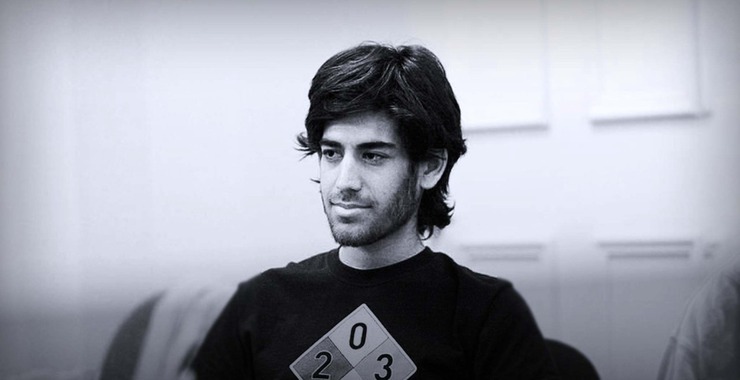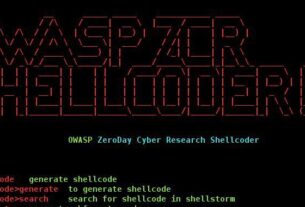Welcome back, my aspiring cyberwarriors!
In this series, we are examining the cases of some of the world’s most famous (infamous?) hackers. I believe that the more you know about these cases, the better you can protect yourself from similar outcomes. In all of these cases we will detail, the outcomes were legal and incarceration except in Aaron Swartz’s. In this case, this brilliant computer scientist/hacker chose to kill himself rather than face prosecution from malicious prosecution from a grandstanding prosecutor.

Aaron was an American computer programmer, entrepreneur, writer, political organizer, and Internet hacktivist who made significant contributions to the development of the modern internet and advocated for free access to information. Aaron is best known for web feed format RSS. He also is responsible for technical architecture of Creative Commons, the Python website web.py and the lightweight markup language Markdown.
Early Life and Accomplishments
Born on November 8, 1986, Swartz showed exceptional talent from a young age:
At 12, he created The Info Network, a user-generated encyclopedia that won the ArsDigita Prize
At 14, he co-authored RSS 1.0, a web feed format that revolutionized content distribution
He was involved in the development of Creative Commons, an organization dedicated to creating copyright licenses
Swartz contributed to the development of the social news site Reddit, the Python web framework web.py, and the lightweight markup language Markdown
Aaron contributed to the development of Reddit
Aaron was a research fellow at Harvard University’s Safra Research Lab.
Aaron’s Beliefs
Aaron was passionate about open access to information. He campaigned against internet censorship and believed that academic and government information should be available to everyone. It was this belief that was to become his downfall.
Aaron’s Activism
Digital Rights and Internet Freedom
Swartz was a vocal opponent of internet censorship and restrictions on digital rights:
He played a crucial role in the campaign against the Stop Online Piracy Act (SOPA) and PIPA, which were seen as threats to internet freedom
In 2010, he founded Demand Progress, an organization that mobilized over a million online activists to fight against internet censorship bills
Open Access to Information
Swartz strongly believed in making academic and scientific knowledge freely available to the public:
He wrote the “Guerilla Open Access Manifesto” in 2008, advocating for the free sharing of scientific and scholarly articles
His actions to download millions of academic articles from JSTOR using MIT’s network were seen as an attempt to liberate this information for public use
Government Transparency
Swartz worked to increase transparency in government and politics:
In 2008, he founded Watchdog.net to aggregate and visualize data about politicians
He filed a Freedom of Information Act (FOIA) request in 2010 to learn about the treatment of Chelsea Manning, the alleged source for WikiLeaks
Aaron’s Legal Troubles
Aaron was arrested by the Massachusetts Institute of Technology’s police on January 6, 2011. He was arrested for downloading a mass quantity of academic articles from JSTOR using MIT’s network. Federal prosecutor, Carmen Ortiz, charged him with wire fraud and eleven counts of the Computer Abuse and Fraud Act (see The Legal Issues of Hacking ). These federal charges carried potential penalties of up to 35 years in prison and $1 million in fines. Aaron refused a plea bargain on these charges and when the prosecutor refused his counter-offer, Aaron took his own life on January 11, 2013, at the age of 26, while the case was still pending.
Aaron’s Relationship to Wikileaks
Aaron’s relationship to Wikileaks is a bit murky and most of this information was revealed by Julian Assange and WikiLeaks after his death.
WikiLeaks made several statements about their connection to him:
They claimed that Aaron had assisted WikiLeaks.
They stated that Aaron was in communication with Julian Assange, particularly during 2010 and 2011
WikiLeaks said they had “strong reasons to believe, but cannot prove, that Aaron was a WikiLeaks source”
Some speculated that WikiLeaks’ disclosure might suggest that part of the Department of Justice’s and Secret Service’s investigation and prosecution of Aaron could have been related to his ties to WikiLeaks. Wikileaks had been a target of the US Justice Department after it had released emails and videos of US military involvement in civilian massacres and war crimes in Iraq.
The timing of WikiLeaks’ statements, coming shortly after Swartz’s death, raised questions about their motives. Some suggested that WikiLeaks may have been trying to imply that Swartz was targeted by U.S. authorities in an attempt to get at WikiLeaks.
Summary
The case of Aaron Swartz is a tragic one. One of the most talented computer scientists of a generation was lost due to overly ambitious and grandstanding prosecutors. Some believe that he was targeted by the US Justice Department due to his alleged connections to Julian Assange and WikiLeaks. In any case, the loss of Aaron Swartz is a tragedy that could have been easily avoided.
In 2013, Aaron Swartz was inducted into the Internet Hall of Fame, posthumously.





